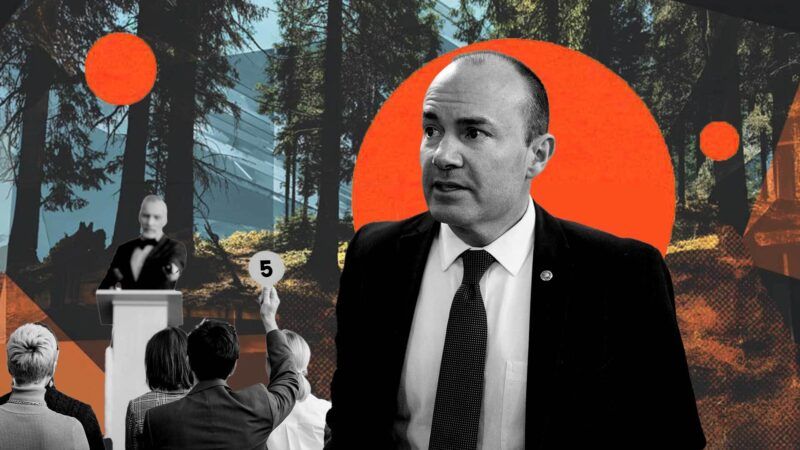The Federal Government Owns Too Much Land. Selling It Helps Rural Communities.
Why Sen. Mike Lee's plan to sell public land doesn't go far enough

Sen. Mike Lee (R–Utah) recently introduced an amendment to the One Big Beautiful Bill Act that would require the Department of Agriculture and the Department of the Interior to identify 3 million acres of public land to be sold for housing and community development over the next five years. Conservationists have denounced the move, saying that America's natural beauty is not something that should be up for sale.
The Wilderness Society calculated that the amendment would open up 258 million acres of public land for sale, more than 94 million acres of which are managed by the U.S. Forest Service (USFS) and 164 million acres that are overseen by the Bureau of Land Management (BLM). This eligible land excludes national parks, monuments, wild rivers, grazing- and mining-leased lands, and right-of-way lands, explains Backcountry Magazine. The amendment requires 2.2 million to 3.3 million of these acres to be put up for auction, per The New York Times. That means only 0.85 percent to 1.28 percent of eligible public land would be privatized. This represents 0.42 percent to 0.63 percent of all the public land managed by the federal government, including that managed by the National Park Service.
Benji Backer, founder and CEO of Nature is Nonpartisan, a conservation organization, told CBS News that "the environment isn't about numbers" and that the amendment would facilitate "developers going in and developing more homes and more apartments and more businesses and that's not something that the American people want." The public backlash to the proposed amendment suggests that many Americans do not want this land to be developed, but that doesn't mean that the government should be the one managing it.
The federal government is the largest landowner in the United States, controlling nearly one-third of the nation's lands, most of which are in the West. This federal monopoly on land disproportionately impacts rural communities, depriving local governments of tax revenue from timber harvesting, mineral extraction, and energy production.
As the government stymies economic development, it also serves as a poor conservator. Federal regulations delay forest management activities like prescribed burns and mechanical thinnings—making wildfires more deadly and expensive—and punish people who try to conserve America's natural habitats.
Empowering private landowners and organizations, rather than maintaining the government's reach, would produce better environmental outcomes. Already, The Conservation Fund, a nonprofit dedicated to environmental preservation and economic development, "has purchased, protected and passed on more than 9 million acres of land" over the past four decades. The fund purchases at-risk "wildlife habitat, working forests, farmland and other vital conservation properties" and then resells the land to its conservation partners to permanently protect the land from development. The fund effectively compensates the public for its land by bidding it away from its other valuable uses.
Lee's amendment to the reconciliation bill is a good first step toward putting public lands to their highest valued uses. However, auctions of public land cannot secure "fair market value for the tracts of covered Federal land conveyed" if tracts may only be used "for the development of housing or…associated community needs." By restricting the use of lands purchased at auction, Lee is preventing the market from allocating them most efficiently.
